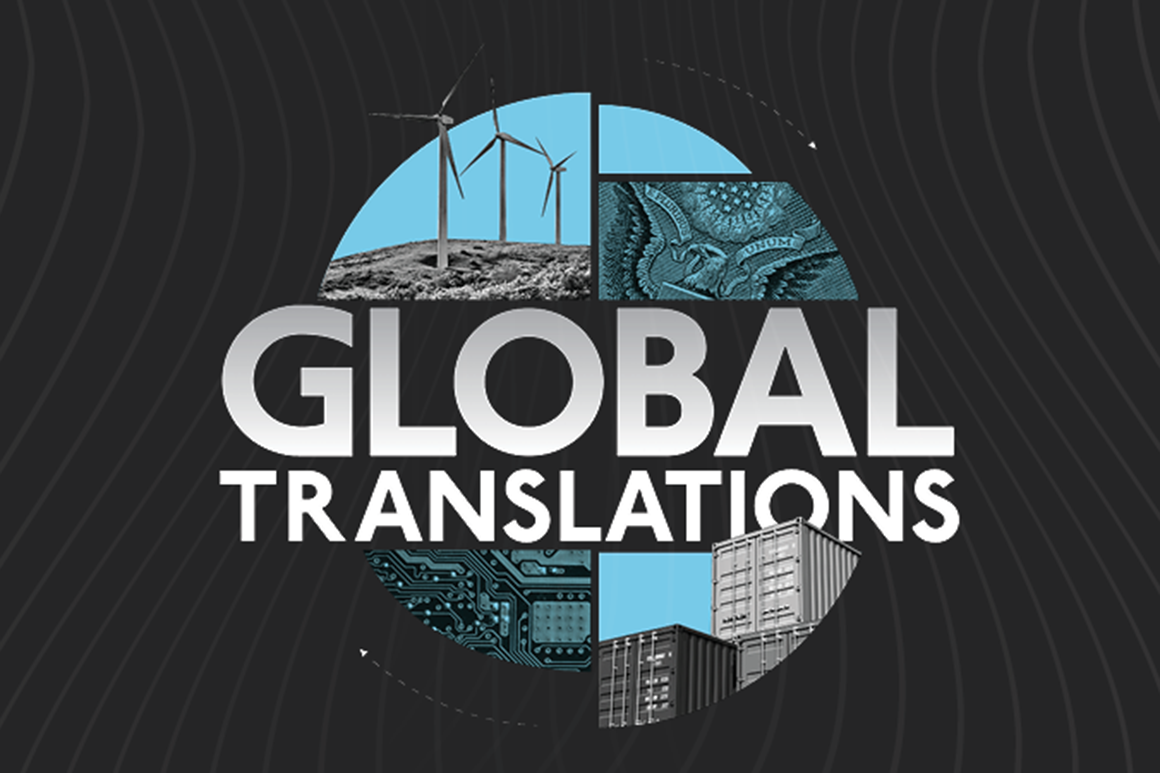
Welcome to POLITICO’s new Global Public Health Spotlight — an extension of the Global Translations newsletter. Each week we track major issues facing the globe. Sign up here.
The head of the World Health Organization is fighting back after four months of scathing political and scientific criticism.
Pressured by the U.S. government, which gave its formal notice of withdrawal from WHO earlier this week, and a pandemic that is accelerating across the world, Tedros Adhanom Ghebreyesus on Thursday announced the creation of an independent panel that will review WHO’s response to the coronavirus pandemic, as well as that of governments around the world.
Helen Clark, a former New Zealand prime minister and U.N. Development Programme chief, and Ellen Johnson Sirleaf, a former Liberian president and Nobel Peace Prize winner, will lead the panel. In true United Nations-style, the pair have a year to examine the lessons from the global failure to contain the Covid-19 pandemic before their report is due.
“This independent evaluation was WHO’s attempt to get out from under the crushing weight of a fight between China and the United States,” said Lawrence O. Gostin, director of Georgetown University’s O’Neill Institute for National and Global Health Law. Gostin served on two global commissions to report on the lessons learned from the 2015 West Africa Ebola epidemic and is a close observer of WHO.
In recent months, President Donald Trump has repeatedly accused WHO of being too close to China, where the outbreak started, and of not being fast enough in informing the world about it. WHO argues it works with all its member countries in the same way. Trump, nonetheless, halted funding for the organization, depriving it of its biggest donor, and started a 12-month long withdrawal process.
While few share Trump’s exact criticisms of WHO, calls for reform of the organization are growing, including from supportive governments and scientists who consider WHO slow and conservative in its policy responses.
Germany and France — vocal supporters of WHO in public — are privately unhappy with what they see as a lack of transparency and accountability at the organization.
The German and French health ministers met Tedros in Geneva in June and announced they would increase their donations to offset the U.S. funding halt. Germany, alone, offered to give €500 million ($553 million), with some strings attached. “This comes with the expectation that remaining challenges are adequately addressed and needed reforms are pushed forward,” German Federal Health Minister Jens Spahn said.
Scientific criticism of WHO has also been ramping up, made all the more painful because it is coming from scientists that support WHO’s mission. This week, 239 scientists called for WHO to speed up its scientific assessments and acknowledge that the novel coronavirus that causes Covid-19 can linger in the air in enclosed spaces, and not just on surfaces. In an updated scientific brief on Thursday, WHO said that that risk cannot be ruled out, but that more evidence was needed to confirm it.
In his announcement of the new panel on Thursday, Tedros pushed back on the criticism from national governments. Despite repeated warnings of the risk of a severe respiratory pandemic striking, the world —not merely WHO — fell short in its response, he said. “Our systems were not ready; our communities were not ready; our supply chain collapsed,” he said.
The U.N. body insisted that the new panel not look only at WHO, but at the whole world’s response to the pandemic.
A second WHO inquiry starts this weekend in China. A team of WHO researchers will investigate which animal the coronavirus came from and how it infected humans. Gostin has low expectations about that inquiry turning up any answers. “It’s basically sending someone to a crime scene that’s been completely scrubbed,” he said, noting that the Wuhan market where the outbreak is thought to have started has been closed and many traces back to the source may have been lost by now.
Gostin agrees that WHO should reform its science communication. The mixed messaging on the usefulness of wearing masks, the miscommunication about how infected, but asymptomatic, people can still spread the virus and now the doubts surrounding airborne transmission have eroded confidence in the institution, he said.
Even bigger changes revolve around whether member countries want to give WHO the power to verify reports from national authorities and require governments to comply with its recommendations, he said.
COVID VACCINE RACE LATEST
Scientists scoff at Indian agency’s plan to have a Covid-19 vaccine ready for use next month. Six Indian companies are developing vaccines and two of them, Bharat Biotech and Zydus Cadila, have permission to start human clinical trials.
Immunity concerns temper optimism over coronavirus vaccine: Scientists are optimistic they’ll find a coronavirus vaccine. The bad news? We might need to vaccinate the entire globe every year.
A ‘Zero-Sum Game’: Is the World Defeating Itself in the Covid Olympics? Elizabeth Ralph explores.
GLOBAL HEALTH SNAPSHOTS
Pharma companies say they’ll put $1 billion into producing new antibiotics.
Five Covid-19 mysteries scientists are still trying to solve.
Uruguay seems to be one Latin American nation that got its pandemic response right.
Polish president taps into anti-vax sentiment ahead of elections.
Source: politico.com
See more here: news365.stream






